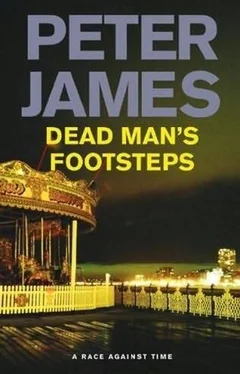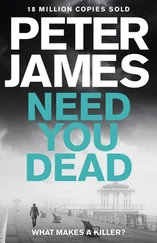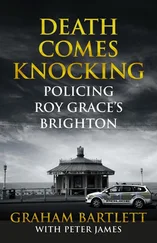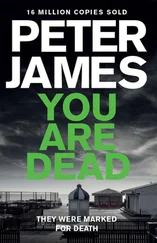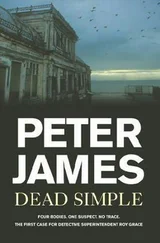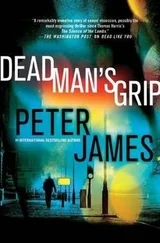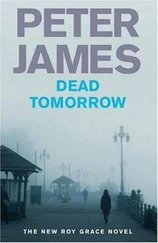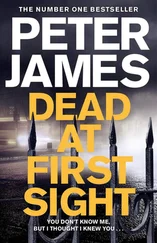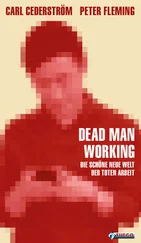They walked through into what looked like a den converted from a spare room. A hard-drive back-up sat on a desk, along with a keyboard and a mouse, but no computer. Several cigarette butts lay in an ashtray and had evidently been there a while. The window looked across to the grey wall of the building opposite. There was a pile of bills on the side of the desk.
George Fletcher lifted one of them. It had large red printing on it.
‘Electricity,’ he said. ‘Final reminder. Several weeks ago. That’s why it’s so hot. They’ve probably cut him off.’
‘I’ve had the landlords on my back about Mr Nelson,’ the caretaker prompted. ‘He’s behind with the rent.’
‘Badly?’ Burg asked him.
‘Several months.’
Nick Nicholl was looking around for family photographs, but could not see any. He stared at a stack of bookshelves, noticing that alongside the volumes of stamp catalogues there were several collections of love poems and a dictionary of quotations.
They entered a large, open-plan living and dining room, with a view across a wide balcony with a barbecue and loungers on it, and a neighbour’s rooftop tennis court, to the harbour. Nick could just make out the hazy silhouette of industrial buildings on the far shore.
He followed the three detectives through into a smart but narrow kitchen, and by then he was having to pinch his nose against the worsening smell. He heard the buzz of flies. A mug of tea or coffee sat on the draining board with mould on top of it and there was rotten fruit, covered in grey and green mould, in a wire basket. A wide, dark stain lay on the floor at the base of the swanky silver fridge-freezer unit.
George Fletcher pulled open the bottom door of the refrigerator and suddenly the smell got even worse. Staring at the green, decaying cuts of meat that lined the freezer shelves, he said, ‘Lunch is off, guys.’
‘I think someone must have told Mr Nelson we were coming,’ Troy Burg said.
Fletcher closed the door. ‘He’s gone all right.’
‘Done a runner, you think?’ Norman Potting said.
‘I don’t think he’s planning to come back any time soon, if that’s what you mean,’ the Detective Senior Sergeant replied.
OCTOBER 2007
The plane landed at Gatwick at 5.45, twenty-five minutes early, thanks to a tail wind, as the captain proudly reported. Roy Grace felt like shit. He always drank too much booze on overnight flights, in the hope it would knock him out. It did, but only for a short while and then, like this morning, it left him with a headache and a raging thirst. On top of which, he felt uncomfortably stuffed from a revolting breakfast.
If his bag came through quickly, he thought, he might just have time to go home and grab a shower and change of clothes before getting to the morning briefing. His luck was out. The plane might have come in early, but the delay at the baggage carousel wiped out that advantage, and it was 6.40 before he lugged his bag through the green customs channel and headed down to the buses for the long-term car park. Standing at the stop, in the dry but chilly morning air, he dialled Glenn Branson for an update.
His friend sounded strange. ‘Roy,’ he said, ‘are you going to go home?’
‘No, I’m coming straight in. What’s new?’
The Detective Sergeant brought him up to speed, firstly with a progress report from Norman Potting in Sydney. Information on the passports held by David Nelson and Margaret Nelson had come to light during the course of the day, revealing them both to be forgeries. And Nelson had gone from his flat. Potting and Nicholl were now door-stepping all David Nelson’s neighbours, in the hope of finding out more information on his lifestyle and circle of friends.
Then Branson moved on to Katherine Jennings. She was waiting for a call from Skeggs to arrange the time and location of their meeting for the handover of the stamps and her mother. Branson told him they had two surveillance units on stand-by, up to twenty people available if they decided they needed them.
‘What about the firearms unit?’ Grace asked.
‘We don’t have any intelligence that Skeggs is armed,’ he replied. ‘If that changes, we’ll involve them.’
‘Are you OK, mate?’ Grace said when Branson had finished. ‘You sound a little strained. Ari?’
Branson hesitated. ‘Actually it’s you I’m worried about.’
‘Me?’
‘Well, your house really.’
Grace felt a prick of alarm. ‘What do you mean? Did you stay there last night?’
‘Yes, I did, thanks. I appreciate it.’
Grace wondered whether his friend had broken something. His precious antique juke box, which Glenn was always fiddling with, maybe.
‘It might be nothing, Roy, but when I was leaving this morning, I saw – at least I could swear I saw – Joan Major driving down your street. It wasn’t fully light, so I could be mistaken.’
‘Joan Major?’
‘Yeah, she drives one of those rather distinct little Fiat MPV things – you don’t see many of them about.’
Glenn Branson had impressive powers of observation. If that was who he said he had seen, then almost certainly he had. Grace stepped on the bus, holding the phone to his ear. It was curious that Glenn should see the forensic archaeologist driving down his street, but hardly any big deal.
‘Maybe she does a school run in the area?’
‘I doubt it. She lives in Burgess Hill. Perhaps she was dropping something off to you?’
‘That doesn’t make any sense.’
‘Perhaps something occurred to her and she wanted to see you.’
‘What time did you leave?’
‘About 6.45.’
‘You don’t pop around to someone’s house for a chat at that time in the morning. You use a phone if it’s urgent.’
‘Yeah. Yeah, I think you would.’
Grace told him he hoped to be at the office in time for the briefing, but when he reached his car he decided that, provided the morning rush-hour traffic wasn’t too bad, he would dash home first. Something he could not put a finger on was bothering him.
OCTOBER 2007
At 8 o’clock, when her phone finally rang, Abby had been up, dressed and ready for a good two hours. She hadn’t been able to sleep properly all night, but had just lain on her hard bed, with its tiny pillow, listening to the traffic on the seafront, the occasional wail of sirens, the shouts of drunken yobs and the slamming of car doors.
She was worried out of her wits about her mother. Could she survive another night without her medication? Would the distress and the spasms bring on a heart attack or a stroke? She felt so damned helpless, and she knew that bully Ricky would be playing on that. Counting on that.
But she was well aware too that he’d seen just how devious she could be, from their time together in Melbourne and now from the events of the past few days. It wasn’t going to be easy. He wasn’t going to trust her an inch.
Where would he dictate that they meet? In a multi-storey car park? A city park? Shoreham harbour? She tried to think where people in films met to hand over kidnap victims. Sometimes they dumped them from moving cars; or left them in a car abandoned somewhere.
Every one of her speculations ran into buffers. She didn’t know, couldn’t predict. But one thing she had decided, totally and utterly non-negotiable, was that she would want absolute proof, to see with her own eyes, that her mother was alive before she did anything.
Could she trust the police? What would happen if he saw them and panicked?
Weighed against that was how much she could trust him to deliver her mother back at all. If she was even still alive. He’d shown what a total, feelingless shit he was in taking an old lady and putting her through this torment.
Читать дальше
